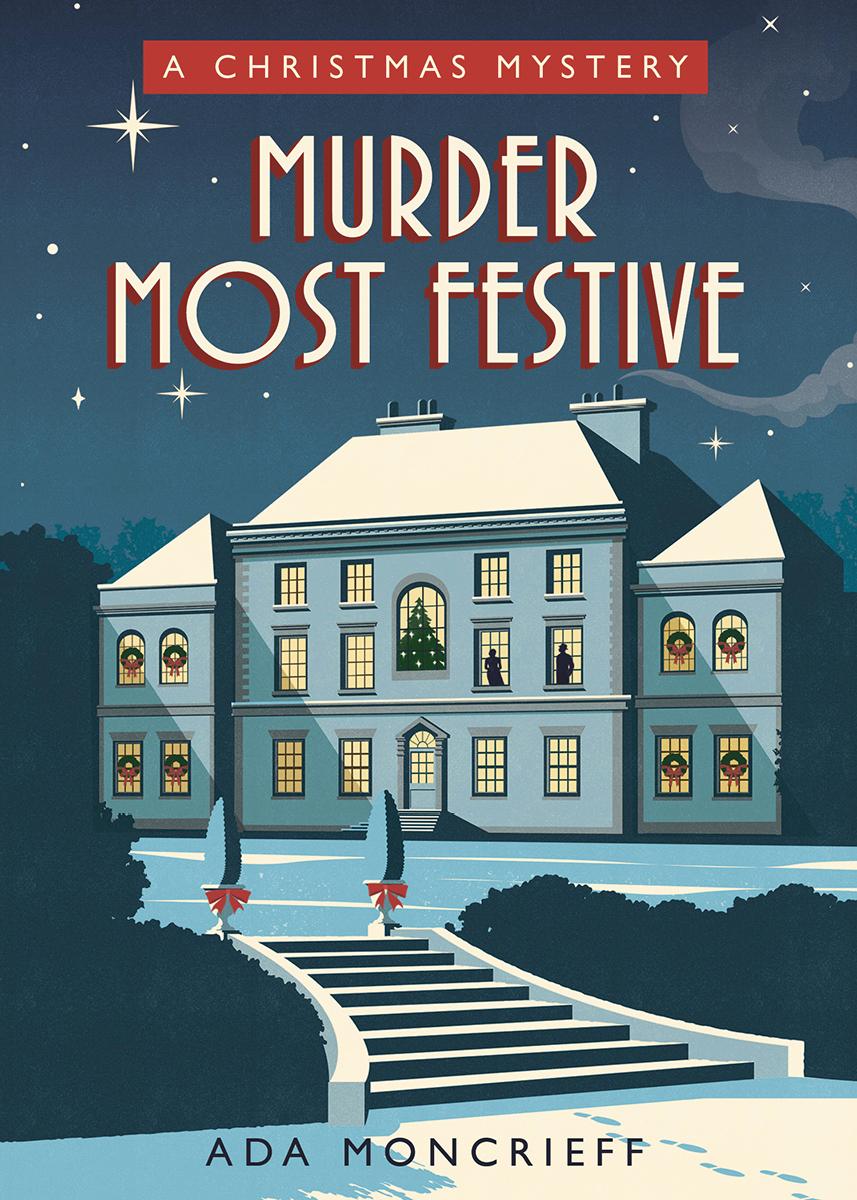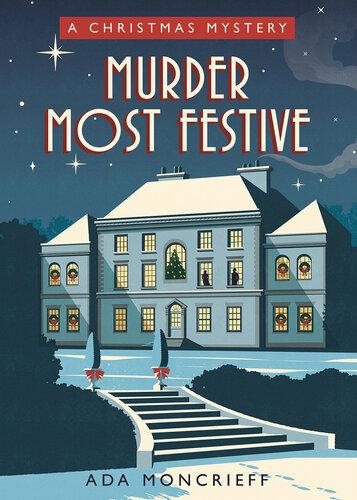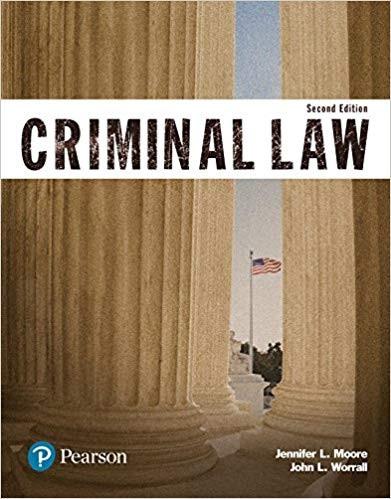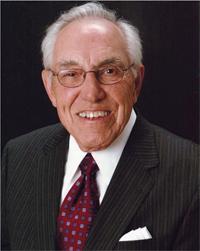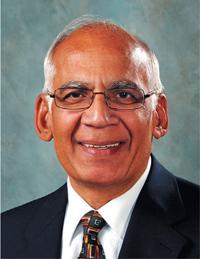Índice de capítulos
Instrucciones para el acceso en línea
Cubierta
Portada
Página de créditos
Dedicatoria
Colaboradores
Prefacio
Agradecimientos
1: Introducción al desarrollo humano
Períodos del desarrollo
Importancia de la embriología
Aspectos históricos
Genética y desarrollo humano
Biología molecular del desarrollo humano
Términos descriptivos en embriología
Problemas con orientación clínica
2: Primera semana del desarrollo humano
Gametogénesis
Meiosis
Espermatogénesis
Ovogénesis
Comparación de los gametos
Útero, trompas uterinas y ovarios
Ciclos reproductivos femeninos
Ciclo ovárico
Ciclo menstrual
Transporte de los gametos
Maduración de los espermatozoides
Viabilidad de los gametos
Secuencia de la fecundación
Segmentación del cigoto
Formación del blastocisto
Resumen de la primera semana
Problemas con orientación clínica
3: Segunda semana del desarrollo humano
Finalización de la implantación del blastocisto
Formación de la cavidad amniótica, el disco embrionario y la vesícula umbilical
Desarrollo del saco coriónico
Sitios de implantación de los blastocistos
Resumen de la implantación
Resumen de la segunda semana
Problemas con orientación clínica
4: Tercera semana del desarrollo humano
Gastrulación: formación de las capas germinativas
Línea primitiva
Proceso notocordal y notocorda
Alantoides
Neurulación: formación del tubo neural
Desarrollo de los somitas
Desarrollo del celoma intraembrionario
Desarrollo inicial del sistema cardiovascular
Desarrollo de las vellosidades coriónicas
Resumen de la tercera semana
Problemas con orientación clínica
5: De la cuarta a la octava semana del desarrollo humano
Fases del desarrollo embrionario
Plegamiento del embrión
Derivados de las capas germinativas
Control del desarrollo embrionario
Aspectos destacados de la cuarta a la octava semana
Estimación de la edad embrionaria
Resumen de la cuarta a la octava semana
Problemas con orientación clínica
6: Período fetal: desde la novena semana hasta el nacimiento
Estimación de la edad fetal
Aspectos destacados del período fetal
Fecha probable del parto
Factores que influyen en el crecimiento fetal
Procedimientos para evaluar el estado fetal
Resumen del período fetal
Problemas con orientación clínica
Another random document with no related content on Scribd:
“Shrewd guess of Big John’s that was, Dad,” he replied. “It cut off at least half a mile for them. If the cat had gone north, along under the first rim wall, they’d have been out of it instead of us. Let’s ride back into the gulches and box canyons of the country behind the rim, and see what we can see.”
They looked up, seeking a place to climb back. A thousand feet above them towered the rim of rock, dented with columnar pinnacles, crowned with dwarfed pines that they knew were themselves at least a hundred feet high. The Colonel was winded and panting before they had climbed for fifteen minutes. The crumbly soil slid down underfoot; even zigzagging was slow and laborious toil,—not at all eased by ledge after ledge of rock outcroppings that called for hands, knees and feet to scramble up them. Niltci and Sid pulled and pushed the Colonel up, but an hour of dizzy, sweating work had gone by and all were spitting cotton before they stood at the base of the rim rock precipice.
Five hundred feet sheer it rose above them. For comparison Sid imagined that if he were looking up the Woolworth building to its very top and if, at the same time, he were standing on a narrow shelf of yellow and rotten rock with a slope three times as deep below, ending in blue nothingness—he would have some of the sensations that now overcame him as he looked up for some possible chimney up which to climb and wondered how they were ever going to get his father up it if they did find one. If he could only manage to stand off from this thing a little, so as to get some idea of its surface, it would be easy to find the break in the rim where they had come down. Which way did it lie, north or south? They discussed it, finally yielding to Niltci, who was sure that it lay north.
Along under the rim wall they crept. The narrow path was worn deep with cougar tracks. It was a regular runway for them, for they lived down here in the canyon and came over the rim at night to hunt in the deer and wild horse country of the hinterland. At any point they might come upon a cougar cave, here, and the Colonel,
who was in advance, never passed around a pinnacle base without stepping warily, with his rifle poised for instant use.
“By George, Niltci, you’re wrong—we should have turned south!” barked out Sid after perhaps half an hour of this gingerly progress. “Look at these young Matterhorns coming up out of the canyon below us! I never noticed them before!”
The party stopped to take bearings. Certainly the lookout was new and unfamiliar. The canyon jutted out here in a great cape, and on its slope Nature had dropped, casually, three or four red and yellow mountains that rose below like pyramids. Anywhere else they would be objects of wonder and bear grandiloquent names.
But Niltci shook his head vigorously and led on without a word. The rim cliff ended abruptly a little further on in a huge tower of stone, and, rounding it, they found themselves in a vast amphitheater, a mile deep, and a mile across a valley of illimitable depths to its opposite point. All around it the cliffs rose sheer. Surely they never came down here! Niltci had to acknowledge that much, himself, but instead of turning back to retrace their steps he grunted impetuously and led them on, following the rim into that enormous basin.
“Aw, rats!—what’s the use, Niltci, you’re crazy!” exploded Sid, as both he and the Colonel balked at going any further. For answer the Indian boy pointed to a thin fissure that cleft the rim from top nearly to bottom, up near the head of the basin. It was about half a mile away. How Niltci could know that that crevice could be practicable for ascent, Sid could not conjecture, but the red men were wise in the ways of Nature, so he followed on, albeit incredulously. But he had no idea what impassable obstacle might await them to the south if they turned back. This, at least, looked possible!
Arrived at it, they peered up to where the last of it ended in a broken, jagged path, showing where water had come down during the rains. For fifty feet this rose up the cliff,—an absurd trail for anything but a fly to attempt; then began the in-cutting of the fissure.
Niltci started up it, amid a howl of protest from Sid and the Colonel. Like a creeping cat the Indian lad climbed steadily up until he had reached the fissure, where he turned with a whoop of triumph.
“Wow! We can’t let him get away with that, Father!” chuckled Sid. “Shut your eyes and climb! Forget mother, forget your insurance, and all the rest of it—it’s the only way!—I’ll be right behind you.”
The Colonel groaned, whimsically, and started up. Niltci came down again by some incredible feat of legerdemain—as they looked back upon that climb afterwards—and gave him a strong lift over the worst places, and so they all reached the bottom of the fissure. It was dark and gloomy, and it curved around a bend above, so that they had no idea how it was all going to turn out—most likely in some sheer wall, thought Sid. But the only way to get over these things was to go ahead and do them, so they climbed up into it. Part of the time Niltci was straddling both walls of it; part of the climb crawling up vertical ledges higher than his head. The curve mercifully hid from them the frightful depths below, should anyone fall. It grew better, once around it, cutting deeper and deeper into the rim wall and becoming less and less vertical. Masses of pine roots fringed it overhead, and finally their feet found a narrow bottom of yellow, crumbled rocks, which led up in a steep slant to the forest above.
“Great work, Niltci! That’s mountaineering for you!” laughed the Colonel as they dropped panting on the forest duff. “I suppose you could visualize this whole water crack, having once seen the fissure in the rim wall, eh?”
Niltci grunted happily. He had no idea what that speech was all about, but evidently his adored Lord Colonel was pleased! Sid rejoined them, a moment later, and all sat and looked ruefully at their clothing. Their bleeding knees peeped through frayed and torn riding breeches, their buckskin gloves were out at the fingers; Sid had a scraped thigh, caked with blood; all the uppers of their cruiser moccasins gapped open in rent seams. Niltci, in his light cottons and buckskin leggings, seemed the least frazzled of the three, but his
bare toes poked out from thin moccasins worn through on the rocks. It was half an hour before the Colonel sat up again.
“And now, where are we?” he queried, briskly. “We’ve got all the rest of the day, so we’ll find the horses and go hang up a buck for camp meat.”
They all rose and started off through the forest. A short walk through the high pines that covered the plateau brought the blue haze beyond, of the canyon again, and presently they came out on a rock pinnacle that commanded the whole prospect below. A sheer fall about a thousand feet lay below them. Beyond that smoky, purple depths showed beyond over the second rim.
“The place where we came down must lie to the west of here, boys,” declared the Colonel. “Big John and Scotty are somewhere down in this valley—they’ll be all day getting back! We’ll start west for another look-see.”
A second outlook from another point showed them the steep slope down which they had first come. Up in the ravine at the head of it would be the horses, for there they had first started the cougar. Soon they were in it and had remounted.
“Sore and tattered, but still in the game!” ejaculated the Colonel as he put spurs to the roan and led back up the ravine into the hinterland.
Back in here they found the huge flanks of Buckskin all cut up with rocky glades grown up with yellow pines, and gulches which led to high, walled canyons, all leading out to a discharge into the Grand Canyon, somewhere. Great pines grew heavily in the swales. It was a wonderful, rich, plentiful game country! Again and again Niltci grunted, to point down at deer tracks, wolf tracks, and the round hoof-prints of wild horses, and there seemed to be a cougar after every deer, judging from their frequent footprints!
“Hist!” called the Colonel, suddenly, stooping down to whip out his .35 from its scabbard. The bushes shook, up in a densely grown ravine that lost itself somewhere in the upper flanks of the
mountain. Gray shapes bounded across it, stiff-legged, flashing into sight occasionally, to disappear as quickly.
The Colonel’s rifle barked, followed by Sid’s. One of the gray shapes plunged, and there was a mad scramble in the timber. They were mule deer, a whole drove of them! Sid fired at another, running bewilderedly up a bush-strewn slope in full flight. Then all was still again.
“I nailed mine,” said the Colonel. “We’ll wait a while. Once he lies down he’ll never get up.—Lord, boys, there must have been thirty in that drove!”
He got out his pipe and lit it, while the horses switched flies patiently. Then Niltci, who had been scouting through the bush, called to them with a low grunt of eagerness. There seemed to be suppressed excitement in it, too, and the tones of his voice thrilled Sid with a nameless feeling as he urged his horse over to where Niltci stood, pointing down at the track.
“Come over here, Father—for the love of Pete, look!” called Sid, tingling with shivery sensations as he looked down from his horse at a deep hollow in the needles, over which Niltci still stood, his wild eyes snapping meaningly.
The Colonel came over and halted his horse. The track looked as if someone had set down a long oval bowl there. It was all of fourteen inches long, and the foot that made it had borne down so heavily that a trilobed palm and the five toeprints, huddled together like a human foot, were distinctly visible. And such toes! Each one was the size of two human thumbs laid down together! Some distance beyond each was a long, pointed gash in the soil at least five inches from base to tip, the claw marks, all heading together.
“Good Lord! That’s more than a grizzly, Sid!” ejaculated the Colonel after studying it awhile. “I tell you what!—in the old days we used to have the giant yellow grizzly of California, a whale of a brute. He’d carry off a whole horse, and many’s the cowman who has been suddenly charged by one from ambush. The old boy wanted the
horse, but he didn’t mind fetching its rider a swipe, incidentally, that knocked him into kingdom come. A .45-90,—even the old Sharps .45-105 with the 550-grain bullet—never fazed him. That tribe of grizzlies has been extinct since the early ’90’s in California, boys, but I’ll miss my guess if here isn’t one! First track like this I’ve seen in thirty years. Here, if anywhere, there’d be a few survivors. He’s my meat, Sid! You got old Ring-Neck, up in Montana; this bird is mine!” declared the old Indian fighter, his eyes flashing. “How old is that track, Niltci?”
The Indian boy knelt down and smelled it for some time. Then he raised his head and held up one finger.
“One day, eh? It’s a good thing we got two bucks, Sid. We’ll get one of them out of here for camp meat and leave the other for bait.”
Niltci pointed silently into the bush ahead of him. Here was another deep footprint, and, sighting along it, a dim line of them led up the ravine flank. They followed slowly on the horses, who were shivering and plunging violently, for even up to their nostrils had come that faint grizzly odor that a horse fears above all other things. Up on the ridge the track crossed bare rock, and on a little sandy spot a huge track lay, a beautiful print, like an enormous, flat, stubby hand with long, sharp, in-pointing nails for fingers. Beyond the ridge lay a hideous gulch, a bad-land, all bowlders and scraggly pinyons, twisting and writhing among the rocks in weird contortions. It would invite a broken foreleg to attempt to work the horses in there.
“No use following him any further,” said Colonel Colvin as they reined up to look it over. “We’d only leave our own scent around,—though I doubt if he’dcare any! We’ll go get the bucks.”
They retraced their way and went up on the hill. The Colonel’s buck lay some fifty feet from where he had been hit, his double-Y antlers and black crown proclaiming him a mule deer. Sid’s lay further up in the bush and was a mere spikehorn.
“He’ll do fine for camp meat, though. Get him up, Sid; we’ll paunch him somewhere away from here. The old yellow grizzly may clear
out, if there’s too much human sign around, but still, mighty few people ever hunt this country and he may have that bad temper of the old-timers.”
He halted his horse and looked over the scene, planning where to locate his ambush and the probable course of the charge and battle that would surely ensue if the first shot from the .35 did not prove mortal. Sid and Niltci got up the buck and tied its legs to the saddle thongs. Then they all rode back to camp, silent, subdued, thinking over that twilight vigil of the Colonel’s by the bait, to come.
After rustling a meal, all three went out to the rim rock to await the return of Scotty and Big John. It was nearly sunset before they heard voices below, and then Big John’s sombrero—what was left of it—appeared over the rim. His face was caked with dirt, bloody, and streaked with sweat lines.
“Shore I ain’t got enough clothes left on me to flag a tote-train!” he grinned, spitting the dust out of a grimy mouth as he turned to haul on a bundle below him. “Hyar’s yore cat skin—I needs another skin myself, b’gosh! Anyone which same wants a kitty out’n that canyon kin go an’ get him, an’ keep right on goin’!—Thar!”—he gave the rope a final haul and sat down on the brim with a mighty “Whoosh!” of relief.
Scotty came up, pushing behind the bundle. He hadn’t a word, but an unconquerable grin beamed out of his eyes. He flopped down on the needles, and after him struggled Ruler, to lie down with his long, red tongue hanging out and his sides panting. Pepper crawled over the rim in his wake and curled up in a doggy heap of legs and ears, licking morosely at various red wounds that gashed his sides and thighs. The other two pups were yelping disconsolately at the foot of the slide and Sid and Niltci sprang down to carry them up.
“Whoosh! That was reg’lar Bronx Park huntin’, I’ll say!” exclaimed Big John, yawning, with a mighty stretch of his arms. “Where in thunder was you-all? Scotty, here, got him.”
Sid grinned as he looked over the ragged assembly. Scotty was a sight! He was covered with yellow dirt from head to foot; his breeches were split wide open and a jagged red cut showed on his thigh. Big John’s knees were bloody, with the fringes of his homespuns encircling them like whiskers. Ruler licked steadily at a great red tear on his thigh where the skin hung open like a small hairy tent flap, and shook his ears continually as they dripped blood from long slits in them.
“Father couldn’t make it, boys,” he explained. “It takes a heart like a hunk of sole leather to attempt the canyon. He was wise to stay out. We turned back at the first rim, when you fellows and the dogs went over the second. We’ve got a buck hanging up in camp.”
“Roast her whole, boys,—I could eat a rhinoc’ros raw!” gaped Big John. “We’ve been climbin’ since ten o’clock ’smornin’. Lucky I thought to take my rope down with me. We had to haul them dawgs up the chutes, one at a time.”
Sid and Niltci picked up the cougar skin and the whole party started for camp. An hour later a monumental mulligan, compounded of cougar chunks, spuds, onions, peas, tomatoes and macaroni, boiled in an eight-quart pail, was served. Big John and Scotty were still prodding into the bottom of it with their spoons when Sid and Niltci sat back utterly stuffed. The Colonel had long since departed for his lonely vigil near the buck carcass, awaiting the coming of the Yellow Grizzly.
They stretched out the cougar skin and measured it—nine feet two inches, with three feet six of tail—but could get nothing but uninterested grunts from those two, who still scooped in the mulligan pail for more. Then Scotty and Big John rolled over without a further word and fell sound asleep where they lay.
It was broad daylight when Sid awoke again, and the sun must have been ten o’clock high. The Colonel had not returned. Scotty and Big John slept heavily, for Nature had a lot of fixing up to do on them yet. Niltci was gone. Sid hoped that he had tracked his father to the
rocky gulch, for he felt mighty uneasy about that great yellow bear of the fourteen-inch track, with only a lone hunter to face him. All he had ever read about the California Silver-Tip came to mind. The largest one ever measured weighed 1,150 pounds and was nine feet from nose to tail and over ten feet across the fore paws. That was as large as any Alaska brown bear, yet with the ferociousness and agility of the grizzly to back all that weight and strength. The Black Panther would be a mere kitten compared to this brute! The average Bengal tiger weighed 340 pounds and would go something over eleven feet; the largest cougar was under three hundred pounds. Even the Black Panther would not reach over three hundred, judging from the skin of the cat Scotty had killed. The Yellow Grizzly was three times as big as any of them, and quite as active and ferocious. He doubted whether the .35 was rifle enough to stop him.
Sid had about decided to take Scotty’s .405 and try to ride to the gulch to see what had happened, when he looked up, to see a Navaho Indian standing silently before him. The man’s face looked somehow familiar. Sid thought he recognized him as one of the bucks at the Fire Dance, as the red man held out a grimy envelope and proffered it with a bronzed and friendly smile.
Sid tore it open, although it was addressed to Colonel Colvin.
“DEAR COLONEL [it read]:
“All halleluiah has broken loose in wagon loads, here. I hate to send for the Agent, and perhaps get out a troop of soldiers, but I’ll have to do it if it gets much worse. The Indians have spirited old Neyani off somewhere, and I reckon they’ll make a sacrifice of him to appease Dsilyi in spite of all I can do for him. I found a wild story about the Black Panther having taken Niltci, the boy, when I got here. You had left for the Canyon, but the Panther came back only a few nights later and took another sheep from Neyani’s corral. You can understand how the Indians took that! They wanted to wipe out Neyani’s whole family. If I had dogs I’d track that confounded cougar and do away
with him, somehow, but I can’t lay for him and shoot him here or my influence over these redskins would be gone forever. If you can break your hunt to come over here with the dogs I would be eternally grateful. Meet me in Canyon Cheyo, near the mouth of Monument Canyon, which is a good landmark. I’ll be there, and we’ll put something over on this superstitious bunch of redskins. I declare, I lose all patience with them sometimes!
“Yours
in haste,
“J. F. HINCHMAN, Maj. U. S. A. Ret’d.”
Sid made up his mind at once. It was necessary to get rid of the Indian runner, first, so that their movements could be made unwatched by the Navaho. He went to his tent and tore a fly leaf out of a small leather notebook in his tent wall pocket. He wrote a brief message that they were coming, rolled it small, and slipped it into an empty rifle cartridge. Corking it with a bit of pine, he returned to hand it to the runner.
“You take, White Father Hinch,” he ordered. “Pronto! Savvy? You got meat and oats?”
The Indian shook his head, pointing to the small bag of meal at his loin cloth. Sid cut him a flank from the buck, gave him a bag of oats and a handful of cartridges for a present, and sent him on his way. Then he saddled Pinto and rode toward the gulch, leaving Scotty and Big John still snoring in camp.
He rode along the flanks of Buckskin, trying hard to remember the lay of the ravines, even though he had passed through them twice before. It was not easy. Several times he was sure he was lost, but each time some familiar tree or rock formation reassured him and he rode on. When he finally reached their ravine he was not sure of it, even then. Scraggly pinyons covered its rocky slopes, but there were dozens of others just like it, and there was absolutely nothing living to be seen in it. But, as for men or animals, what are they in Nature’s vast landscapes, where half a mile of verdure is tilted up as
a mere wrinkle in one of her mountains! Buckskin was twenty miles long, a straight knife-edge as seen from across the canyon, cloudcovered, dim, and distant, as inaccessible to the traveling world as the North Pole, and it had hundreds of ravines like this.
Sid halted his pony, looking down into the ravine with half a mind to push on further. Then a sort of break in the pinyons attracted his eye. That was not natural; something lay there! He rode over to it, and long before he reached it a great brown mass of fur appeared dimly, huddled up in a mass of tough, craggy trees that had been broken off like jackstraws. He dismounted and walked over to it with rifle at ready, for by no urging would Pinto come a step nearer. The brown mass did not move as he climbed through the crags toward it. A shiver went through Sid. Why, this was the place the Colonel had chosen for his hide! It was a hundred yards from where the buck lay, down hill, there, on the ravine flank! Then he got sight of the animal’s head. Big as a brown bowlder it was, with incurved snoutbone doubled up on a great beard of furry whiskers. The great round ears were erect, but the eyes were closed and a streak of blood ran from under long, glistening tushes still bared in the snarl of death. It was the Yellow Grizzly, Sid realized—but where was his father! He stood looking over the carcass and peering about through the pinyons, fearfully. There were cakes of matted blood all over the long hair on the bear’s chest, and great cavities where the bullets had come out on the other side, and there in that side was a knife, still buried to the hilt—Niltci’s!
Sid looked around, bewildered. The pines were all torn and mangled about him. There had been a terrific fight, here!
Then a feebly cry electrified him. “Water!” it called, more a moan than an articulate voice.
Sid rushed over. Down in a pit of bowlders he saw the brown khakiclad back of a man, lying face downward doubled up on his side. Those broad shoulders could be none other than his father’s, the boy
realized, as he scrambled toward the spot with sobs of anguish welling up in him.
Gently he turned him over, and sat him up in a more comfortable position. Down the Colonel’s side, from his shoulder to knee, he saw a frightful row of red marks, as if some set of steel cultivator hooks had gouged its way there. The rocks around were all red, and the Colonel’s clothing was soaked and dripping.
But the old warrior’s eyes opened and looked at him steadfastly as Sid slipped his arm tenderly behind his head, calling to him softly, the tears raining down his cheeks. He motioned for water. Sid nodded and raced to where he had tied Pinto. Ripping off the canteen from the saddle hook, he dashed back and held its lifegiving stream to Colonel Colvin’s lips. Then he set about bandaging his claw wounds.
“Better now, Father?” asked Sid, tremulously, as he finished.
The Colonel opened his eyes again. “Niltci!” he gasped, waving his arm feebly. “Don’t mind me—now.”
Sid rested him back, comfortably, and set out in the direction the Colonel had indicated, searching the bowlders under the low pinyons. Fifty feet further on, he made out a white cotton shirt lying under the shade of a scraggy pine. One buckskinned leg was drawn up in the act of creeping; the other lay limp and was red with blood.
“Gosh,—that boy would have crawled all the way to camp for help, if he hadn’t fainted!” exclaimed Sid, as he rushed to him with his canteen. “I need all kinds of help, here! It’s time I fired our signal.”
Niltci came to and grabbed at the canteen, his eyes speaking volumes as he drank. Sid looked around. A glint of blue steel caught his eye. It was the Colonel’s .35—with its stock smashed off close behind the lever. Its magazine was empty, and he dared not move the Colonel again to take more cartridges from his belt. He ran over to the bear’s carcass, grabbed up his own Army .30, and raised it to the sky.
“Bang!Bang!Bang!—Bang!” whipped out its sharp report.
CHAPTER X
THE DESERT’S FROWN
“STOP him!—Nothing stopped him!” smiled the Colonel wanly from his bandages, as he eyed the huge skin of the Yellow Grizzly stretched between four poles and propped up where he could look at it and gloat over it. “Look at that skin—it’s a regular sieve!”
The boys and Big John sat against trees around the small camp fire in front of the Colonel’s stretcher bed tent. It had been a strenuous two days. First there had been, for Sid, those anxious hours of waiting and signaling until at last Big John and Scotty had poked the noses of their ponies over the ridge. Then the long trail home, with two stretchers to carry, the bulk of which labor had fallen on Sid and Big John, while Scotty led the horses. And then a feverish night in camp, when both patients needed sitting up with and constant attention. This second day had been spent in skinning out the grizzly by Big John and Scotty, and in assiduous doctoring and splintmaking by Sid. And now, as sunset came, the huge pelt had been set up for the Colonel to look at, and Sid had decided to let him talk.
“Yes, sir, that was the nearest I ever came to getting my everlasting!” went on the Colonel. “With just two inches more reach he’d have taken out every rib in my body. It was in the dim light before dawn, boys, that I made him out, standing over the body of the deer. He picked that buck up like a mouse and started lumbering off with it. That gave me only a rear quartering shot, which is the very one to make him most angry and do the least immediate damage. But it was that or none, so I drew careful bead and fired.
“That started the fun, men!” said the Colonel, laughing feebly, after a pause to get his breath. “He whirled about and started for me in leaps that were twenty feet to the jump. It was the cursed wind that
did it. You know how it whirls and howls around Buckskin! Never the same any two minutes. Some one of those back currents sweeping down the mountain took my scent right to him. He didn’t want any better guide!
“I think I missed my second shot,” went on the Colonel, “for he was bounding up and down so over those bowlders, rearing and bellowing like an express train as he came. But my third bullet took him square between the eyes and doubled him up like the punch of a battering-ram. He went over in a complete somersault, Sid. Did he stay down? Any other creature in the world, even an African lion, would have been scuppered by that shot, but that mountain of beef got up and came right on, like a ton of hate. You know something of the ferocity of that grizzly charge, Sid, and you, too, Scotty!
“The next shot was a heart shot and I was mighty careful of it, for I had only about forty yards left——”
Big John nodded. “Shore ’twas a center shot, Colonel. That heart was shot to ribbons when I took her out. I seen whar the bullet went in, an’ got her out to see what ye done to him. Oughtta hev stopped him, right thar.”
“Not for a minute! He squalled like a stuck pig, but hardly slackened. I fired my last bullet at fifteen feet and then jumped back from the cleft in the bowlders where I was hidden. He cleared the distance in one bound and I saw that big right paw of his coming down on me like the trunk of a tree. It smashed the rifle out of my hands. I felt like a hot iron had ripped me from top to bottom as his claws raked down inside my guard. I went over backward and then Niltci jumped in, from God knows where, and his knife flashed up and into the bear’s side. That’s the last thing I know about it, for I saw stars as my head struck the rocks.”
“That blow knocked you about ten feet, Father, over the rock and into a little hollow behind your hide,” said Sid. “As for Niltci, a backhand swipe from the bear splintered his leg like a straw. There wasn’t a claw mark on him. The old yellow boy must have collapsed
where he lay, but he bit off and broke every pinyon tree in reach before he gave up. Some charge! I’ll match him against any dangerous beast the world over. I’d like to see a bunch of Masai tackle him with spears, the way they do an African lion!—There would be mighty few niggers left after he got through.”
The Colonel looked blissfully at the great yellow expanse of fur, tipped with fine white at the end of each hair. “Boys, she’ll about cover the floor of the Den back home!” he exclaimed. “I’ve met a good many bears in my time, but our cavalry troop never got over into southern California, although we heard a good deal about those big demon grizzlies there. Even the modern .35 is not gun enough, I’ll say! The old buckskin pioneers must have had their hands full with them!”
Sid now brought up the matter of Major Hinchman’s letter, for it was essential to move quickly about that business.
“The thing to do, as I see it, Father, is for Scotty and Big John and myself to take the dogs over there, right now. We know where the Black Panther hangs out, which the Major doesn’t. He and Big John can run him with the hounds, while Scotty and I climb up by the lariat into Lost Canyon and wait there until he comes. There must be a kiva or underground secret society cave somewhere in that pueblo. We’ll drop the carcass down there, so it will disappear forever. Then Major Hinchman can fix up some sort of a yarn that will take with the Indians, and the whole affair will blow over if the Black Panther don’t come any more. Niltci will be able to creep around and look after you and the camp in a day or so, and there’s plenty of meat and provisions. We can get back in about a week.”
The Colonel ruminated over it for some time. “Looks good, Sid. The less Niltci and I move around the better. I ought to be fairly well healed in a week, and the splints you put on the Indian boy will let him get about if you make him a pair of crutches. We’ll make out! As for the Black Panther skin, it would be a wonderful trophy, but you couldn’t ship it out of Arizona without the game warden examining it, and then word of it would get back to the Indians. For Hinchman’s
sake the only thing to do is to abolish it. Well—you might as well get organized for the trip, Sid.”
He closed his eyes as if tired out with the effort. Sid and Scotty went to their tent, where lay Niltci. On being told that they were going to leave for a long trip, the Indian boy insisted on having a browse bed made for him under the Colonel’s shelter, where he could attend to him. A shy and childlike adoration for the old army officer seemed to have grown up in the Navaho lad; there was nothing he could do that would repay the debt he felt he owed the Colonel for saving him from the fanaticism of his own kinsfolk. This feeling he managed to convey in expressive sign language, accompanied by what few English words he knew. So, while Big John mended horse gear and got the outfits together, the boys spent the evening in making Niltci a pair of rude crutches and moving him out where he and the Colonel could run their own hospital together.
Next morning the boys turned out, to find the Colonel and Big John talking earnestly in low tones together. Sid knew from their serious faces what they were discussing—water. The boys hovered around to listen, for both men were old desert campaigners and a long experience backed their words.
“You can’t make time and take any of the pack animals, John,” the Colonel was saying. “Yet that water hole may be dry, or all green scum not fit to drink, at this time of the year. Ten gallons a day is the very least the horses can make out on. If you fill up at that tank you can push along and reach Canyon Cheyo by evening of the second day. I have only two water bags. Five gallons each. You’ll have to sling them to Scotty’s saddle bags, for he is the lightest. You can carry two quart canteens each, using all our spare ones. See that they are well-corked, for they will be half rations at the best. No use striking for the San Juan. It is really as far up there as over the desert to Red Valley.”
“You leave it to me, Colonel,” broke in Big John, emphatically. “I don’t want no pack horse totin’ water. I’ll rig them bags, an’ we’ll roll
our freight outer here an’ squeeze the dern water out of that desert if we have to!”
The boys made up their own rolls and saddle bags with a sense of the seriousness of their undertaking. To cross that desert without either packing or wagoning an ample supply of water was no joke. If all went well and they kept a good pace, they could make what water they could carry do. If stopped anywhere, any way, by a sandstorm, for instance—it made them thirsty just to think of it!
As they filed out of camp Scotty rode the Colonel’s big roan, for he could easily carry the boy’s weight and the extra eighty pounds of water in the canvas bags. The rest of the party were loaded up with bags of oats in addition to their own outfits.
At the ferry the old-timers shook their heads when the water bags and canteens were filled for their dash. It couldn’t be done—that was certain as death! But there was too much at stake to turn back. They alone could solve Major Hinchman’s Indian troubles, and they weren’t going back on the Colonel’s old army chum, no matter what the risk.
Once across the Colorado the horses cantered off briskly, snorting and whickering with good spirits. They had been filled up with all the water they could hold and it was yet early morning, keen and cool. The steep climb up the red buttes that led over the divide to the flat country north of the mesas began. Then came sand, valleys and valleys of it, with scant vegetation, dry, arid and desolate. That loose sand was particularly hard on the dogs. Lee had been left behind in camp, for he was too long-coupled to have the needful endurance, but Pepper and Bourbon, they had felt, would be worth taking. Ruler seemed made of iron, as he rambled right along through it. He evidently appreciated his responsibilities, for if either Pepper or Bourbon attempted to lag he was behind them with ready snarl and snapping teeth that drove them flying onward. At noon the party halted and doled out their first water. It worried the boys to see how greedily the horses sucked down their allotments of half a canvas pail each and then whickered and bit for more. The dogs nearly
came to a fight over theirs, and each had to be held by his collar to prevent him from flying at the drinking one.
By evening the horses had slowed to an exasperating walk and the dogs limped painfully. Down into a hideous gulch Big John led the party. It was out of the wind, but dry as the Sahara. Here they made their first dry camp. The first water bag had gone flat and the second was already alarmingly lean. Sid shook his canteen. There was but a drop or two in the one on the off hook, and again he felt the cork of the other to make sure that it had not come out. He had gotten through the day on schedule. They were all right, provided
That night he woke up with the cold. That was unusual, in itself, for that bag was good down to below freezing. Sid uncovered the flap and looked out. The stars were obscured, and a steady stinging sift, sift, sift of sand went on all around him. He could hear that faint, continuous hiss and ticking, and, attempting to move in his bag he was surprised to note it heavy as lead and immovable.
“Sounds like the beginning of a sandstorm to me,” he murmured to himself. “I’d better wake John, so we can all turn out and look after the horses.”
He crawled out of his bag and punched Big John awake. The keen wind blew steady and strong, chilling him to the bone, while blown sand gritted in his teeth. It did not take the big plainsman more than one sniff to bounce out of his mess of blankets, wide awake.
“Shore it’s a reg’lar night-bloomin’ swozzle a-comin’, Sid! Let Scotty lie. We’ll git the hosses in under the shelter of the buttes.”
Out in the cold gloom they found the animals, standing patiently with their sides to the wind. Pulling up their picket pins, they herded them into a sort of shelf where a great rock wall jutted out in a weird, wind-scoured formation, like a vast top on end.
“She’s goin’ to hum fit to blow the shingles off a barn, pronto, an’ we’ll all be buried in sand,” said Big John cheerfully. “You an’ I gotta
rig a tarp up here in these rocks, old-timer, before we hits the hay ag’in.”
Sid was shivering like a leaf. He ran for his saddle roll and slipped on the fleece-lined coat, glad of its shelter. Then they unrolled the tarp, fighting it in the wind and the dark like some wild thing, until it was finally anchored and rose at a steep slant like a sort of bear den. Under it they laid their sleeping rigs and then picked up Scotty, bag and all, and carried him over. Aside from a sleepy grunt or two, he slept right through it! The dogs were glad enough to follow them in and curl up again, backed up against the sleeping bags.
“You remember how we batted the snow off the rag house walls up in Montana, Sid?” queried Big John as he crawled into his bag again. “Waal, same stunt here. Reach up an arm an’ hit her a good poke when she sags too much. There won’t be nawthin’ but sand hyarabouts, come morning.”
They dozed off to sleep. Sid awoke before dawn with a sense of some great body pressing down on him. A howling tempest was raging down the gulch; sand in sheets and clouds swirled by. Overhead the tarp sagged down on them all, and, pushing up on it, he found it immovable. His exertions wakened Big John and incidentally jammed an elbow into Scotty’s face so that that exemplary sleeper arose, spluttering and spitting sand out of his mouth.
“Wh—wha—what’s happenin’?” he mumbled. “I dreamed the Grand Canyon had caved in on me——”
“Sho’ has! Turn out an’ shove, old settler,” grunted Big John as the three put their shoulders to it. There seemed to be a ton of sand on that roof, and it would not slide off in the docile way that snow did. It lay heavy and inert, to sag back again as soon as a shoulder was withdrawn.
“Say!” grinned Big John, his dusty eyes sparkling at them from where he sat humped up under the immovable tarp, “if that Atlas
feller done this fer a job, that will be about all for Atlas!—gimme them rifles, boys, we’ll stick ’em up for sort of mine props.”
They tugged the weapons, in their leather scabbards, up out of the bedding, and with them propped up the roof. There was a chance now to look about. A fine dust filled the tent; just out in front a smooth hummock of sand like a snowdrift had accumulated. Beyond roared the wind in a monstrous shout, in a fury awful and unending, and the dim light of dawn showed a yellow and opaque void all around them.
“Waal, we’re alive, an’ that’s a mercy!” drawled Big John as the boys prepared to curl up in their bags again. “No water to-day, boys. We ain’t doin’ nawthin’, and we don’t drink nawthin!—See?”
The stern iron tones of his voice told them that that was an order, peremptory as death! Sid curled up and tried to forget that he was alive. An hour later he looked out. There was no change, except a greater and yellower light, showing that the sun was busy somewhere high above all this. But, off to the left, right near the lean-to, were three large, indistinct objects, all in a row, that he finally perceived were their horses. Sid’s heart smote him. More than any speech was the dumb appeal of those three heads! They were asking their men for water—and not getting it! Unmoved they stood there, patient, but eager. If one whinnied, the sound was lost in the howl of the storm. Sid thought of his own canteen grimly. Not until they moved would man or beast touch water again! It was precious as dear life, now.
About eleven o’clock the storm blew out. Their first intimation of it was a dazzling yellow haze, rapidly thinning the murk of sand dust and as rapidly showing the details of rock and gulch near by in the desert. The dust thinned out, and blue sky began to develop overhead, and then the whole yellow cloud drifted off north and they could dash out of their shelter and begin digging the sand off saddles and equipment.
“Ramble, fellers!—Ramble!” whooped Big John, yanking his saddle up out of the heap of sand that buried all the horse gear. “We’ll roll our freight out of here for Misery Tank, plumb pronto! We jest gotta git thar, come night, for—here goes the last of our water for the hosses!”
Their second water bag collapsed flat, as a scant half pail was drawn from it for each of the three horses. The dogs got a remnant that was left, and then it was rolled up and stowed as of no further use. With eager haste the saddles were cinched, cantle rolls made up, and rifle scabbards slung. Then with a leg over and a chirrup to the dogs, they rode out of “Thirsty Gulch,” as Big John had named it.
Sand, sand, sand; and miles, miles, miles! Black Mesa passed them to the south, and then came a great cliff with wavy stratified lines streaked across its face and flowering plants nearly buried in sand strewing the slopes that led up to it. The horses whinnied and started on the first real run they had made that day. They smelled water, and it did not need Big John’s finger pointing to a deep rocky chasm under the cliff to tell where it lay. A rippled slope of white sand led up to it and then the boys reined up with a cry of dismay. The tank was filled to the brim with white sand drift!
MESA
“WHOA, thar, pards! The world ain’t fell over the moon, jist yet!” guffawed Big John at their blank faces. “She’s thar, boys, only you’ve got to dig fer her. This desert’s full of them little tricks on the pore tenderfoot.”
He got out his camp plate from a saddle bag and started digging. Ruler and the dogs were already shoveling industriously with eager paws, for their noses smelled the water. Sid grabbed out his plate and fell to, while Scotty held back the horses to keep them from burying their hoofs to the fetlocks in the sand and packing it too tight to dig.
After a time it came out damp, then moist, then wet mud. Big John hove out the dogs and stood Sid aside, as they all watched the deep hollow they had made, nine pairs of eyes all trained on the one object of most engrossing interest in all the world,—the seepage of an almost invisible puddle of cool, clear water!
“Git me the canvas pail, an’ a cup, Sid—the hosses is first. Git outer thar, Ruler, you ole potlicker!” he roared, batting back the persistent hound. Scotty was struggling with the horses, jamming back on their curbs as they plunged and pawed, wild to get down into the sand and drink, drink, drink! Then three equine noses shoved urgently, fiercely at them, as a few cupfuls in a canvas pail were passed up.
“This is nawthin’, boys!” grinned Big John, as the impatient animals were being watered. “Onct I hed to save myself by cuttin’ open a bisanaga cactus and go to poundin’ the inside with a club. Thet pulp is full of sweet water, an’ ye squeezes out the pulp an’ throws it away ontil ye hev maybe a pint of good clear water to drink. No old-
timer dies of thirst, the way them writers is allus makin’ ’em do, down south in the barrel cactus country!”
It was all of two hours later when the last of the water bags was filled and the party set off toward the southeast. If no accident befell they had water enough for the run to Los Capitanos del Canyon, where a blessed brook awaited them. The sandstorm had delayed them one day; the whole party were now worried lest they should be too late, for Neyani’s fate hung in the balance, and, perhaps, also that of Niltci’s mother and his sister.
“That thar letter says the Injuns has took ’em off, somewhere, don’t it, Sid?” asked Big John as they discussed the matter, urging the horses along. “Waal, it’s a leetle deetour over to White Mesa, but I’m going thar, boys. That’s a sacred spot to them Navaho; they’re scairt to death of it, an’ think it’s full of ghosts, but the hull tribe sometimes comes thar to pull off some reeligious stunt, each brave sorta bolsterin’ up the other’s courage. It’s just whar they mought take ole Neyani—an’, of course, the Major, he couldn’t do nawthin’ but follow an’ try to talk some sense inter them, ef he heard tell that was whar Neyani was.”
“I’ve heard of the Enchanted Mesa,” replied Sid. “The Navaho call it the ‘Judgment Throne of the Ghosts,’ don’t they?”
“I dunno. It’s a skeery place to go by, in the moonlight, even for a white man. It’s as full of howls and roars, and the awfullest sounds a body ever listened to,” said Big John. “But I’ll bet my ol’ lid thet that’s whar Neyani is, right now!”
After an hour’s riding White Mesa itself jutted up, in a long escarpment, shimmering with heat, in the immense distances. As they gradually neared it Sid felt that never had he beheld such a place. The odd chalky formation rose in ramparts and pinnacles, like bastions of huge whitened giant’s bones. By moonlight one could well expect to see whole regiments of bleached skeletons of departed Indians skipping across it. But there were living beings there, now!
“What did I tell you?” chortled Big John. “Them little moving dots along the base is Injuns, on their ponies. Somethin’ doin’, thar, boys!”
As they rode nearer to the blazing white sepulcher the moving dots showed color and took form. They were the Navaho, a lot of them. Soon some stopped to look at them and there was a commotion among the tiny black figures. Then a lone rider galloped furiously out toward them, mounted on a large black horse.
“That’s no Injun, an’ no pony—it’s Major Hinchman himself!” exclaimed Big John as the rider streaked out toward them.
The man waved his sombrero. “Hi! Hi!—Back!—Halt!” he called excitedly as he thundered toward them.
“Yaas—we’re haltin’, a lot!” muttered Big John as they all reined up and he called back Ruler. “Wonder what’s up?”
“Hi!—Is that you, boys?—Howdy, strangers—get right down!” yelled the white giant on the horse, for it was Hinchman himself. “Jeementley-dingit, but it’s a mercy of Providence that you-all happened to come this way!” he exploded as he rode up close. “I couldn’t have met you at Monument Canyon with this coming off. But I see you’ve got the dawgs—Jeementley but they look good to me! Whar’s the Colonel, Sid?”
“Father’s laid up, sir, over in the Grand Canyon,” explained Sid. “Had a mix-up with a whale of a grizzly and got mauled some, but he’ll be all right, soon. It’s an old-time California silver-tip, Major, the biggest bear I ever saw. Got him in back of Buckskin. Niltci’s looking after father, while we came over——”
“Niltci! Eh? Splen—did!” beamed Major Hinchman, his keen face lighting up with joy and relief. “You don’t tell me! Nothing on earth can convince these Injuns but that the Black Panther came and took him that night——”
The boys laughed, and Big John grinned sheepishly. At the Major’s questioning glance he told him just how that affair really was
managed. Hinchman howled with delight. “Better and better and better!” he cried, his eyes snapping with pleasure. “You see, boys, since you have been gone the Black Panther has been visiting allthe Navaho sheep corrals—— I suppose the dogs running him scared him off Neyani’s—but anyhow he’s become a regular plague. The Navaho now think the Dsilyi is angry with the whole tribe, and they got madder and madder at Neyani over it. One day I found Neyani’s hogan broken down and he and the wife and girl were gone. Couldn’t get a word out of the tribe about it, but I suspected White Mesa would be where they would take them. To-day the whole tribe set off for here, and I followed. Ever hear of the Ganhi, boys?”
They all shook their heads.
“Well, they are giant spirits who live in the mesas and mountains, and they sometimes interfere in mortal affairs when things get too complex. This White Mesa’s a regular abode of them. Not a Navaho will come here except by daylight, and a crowd of them at that. They’ve got Neyani here, somewhere, up in the cliffs, waiting for the Ganhi to give some judgment as to what Dsilyi wants. Now, you-all have got Niltci, which they don’t know. Easy! We’ll stage a miracle with him on White Mesa! Niltci will come back from the dead—from the house of Dsilyi, b’gosh! and he’ll tell them”—he paused a minute while his quick brain plotted something plausible—“I’ve got it!” he shouted joyously. “Why, it’s the chance I’ve been waiting for these five years! For five years I’ve been arguin’ with these fool redskins about their using these cheap traders’ dyes for their blankets. But they’re lazy and indifferent, and can’t see that the mills back east can make Navaho blankets by the thousand and eventually cut them out of their industry with vile imitations. The mills can imitate the patterns, but they can’t get those soft colors of the earth dyes made out here! My stunt is to drive that in by a miracle, and right now! I’ll appear on White Mesa, you’ll see! I’ll be an oracle from Dsilyi, telling them that Niltci will come back to earth on White Mesa, and that the Black Panther will come no more, ifthey will get back to their native dyes again.”
“Sounds good, sir,” said Sid. “How about Neyani?”
“I’ll take care of him, too. We’ll see what we shall see!” smiled the Major enigmatically. “I’m riding along with you, now. You-all turn back, presently, after we get out of sight of the Injuns around the bases of those buttes yonder, and scout around. You’ll soon see where they are keeping Neyani and his family. Then—don’t be scared if you see a Ganhi, yourselves, boys! And keep your wits about you! Better go into camp somewhere in here, and tie up the dogs—they’d only make trouble.”
Once around the chalky bastions of the butte, the Major dismounted and, taking a bundle from his horse, began to climb up a deep cleft that led to the top of the mesa. Big John and the boys unsaddled the ponies and tethered them out, with the dogs leashed on watch under the shade of a huge cliff.
“Better hook on your canteens, fellers,” said Big John as they started out. “’Twon’t look well to be askin’ the Injuns for a drink, an’ thar ain’t no water around hyar.”
Presently they came upon Indians loping in on their ponies from the general direction of Canyon Cheyo. They tethered them in a rude corral, hastily thrown up near the entrance of a huge gap that cleft into the heart of the mesa. Its gorge was filled with Navaho, all silent and scared, and crowding close together for protection. Usually the noisiest of Indian tribes, these bucks were now sullen and silent, greeting the white party with frightened nods, superstitious fear written on every face.
The way led up a steep, narrow ravine, bare of vegetation, a hideous gulch of hot and thirsty rocks. The procession had dwindled down to twos and threes, as Big John and the boys pushed on up it, passing the hesitating and reluctant Navaho. Evidently the tribe feared what they were about to see.
Up near the head and slightly below the top of the mesa jutted a tall white shaft of stone. It was at least fifty feet high, and detached entirely from the cliff wall for some twenty feet down from the top. A
stratified shelf of rock jutted out here, and upon it they saw the qcali and three assistant priests, in a ceremonial dress of feathers and plumes that almost disguised them. They were beating on small skin drums and chanting a dreary monotone as they danced in the jerky steps of the Indian.
The boys watched them as they climbed, and then their attention was attracted to a sort of pocket or cave, opening by a cleft from the top of the mesa, in the sheer wall of the cliff opposite. The wind bellowed and sighed in it, making the weird noises that they had heard without being able to explain them, as they had come up the ravine. With every swirl of the wind scouring over the flat mesa top above, this cave answered with a huge sigh. A most uncanny effect —one would not like to be there at night!
“The mouth of a Ganhi, I suppose!” whispered Sid to Scotty as they paused. “They are supposed to be a sort of giant genii——”
Then he stopped as his eye roved again to the stone pillar. Up on top of that white shaft of stone something moved! What he had thought at first glance were mere hummocks of rock or dusty bowlders, proved to be three human figures! How they had been put there, or how long they had been there, he could not imagine. One of them was smaller than the other two, a pathetic little heap of misery—it was without doubt the girl, and the other two were Neyani and his wife! the boy realized with a sudden shock. They were isolated, starving—and worse than that—oh, much worse—dying of thirst! That lonely rock,—under the pitiless desert sun!
He and Big John and Scotty pushed up rapidly toward the ledge as he passed word of his discovery. The Navaho were down below them in the ravine, straggling along in a thin line, watching the rock fearsomely, while the priests above chanted. This was the day when Neyani and his family were expected to die, or confess, or tell of some vision from the Ganhi, evidently.
Sid looked up. Neyani and his wife had long since given up hope, for they did not move. They squatted in the stony immovability of
Indian pride, huddled on the bare top of the rock, enduring the thirst torture stolidly. But the girl was young, and life to her was yet sweet. She had moved and was now looking down at Sid, and her tongue stuck out at him, black and dry and revolting. At first the boy thought she was making a face at him; then he realized that she couldnot draw back her tongue! She had reached the last stages of thirst, when the tongue protrudes like a strangling person’s, black and cracked and dry. Her dark eyes looked down at him beseechingly.
“Gee, boys, do you see that?—Here! I can’t stand this!” barked Sid, tugging at his canteen. “That girl’s dying of thirst. I’ve been thirsty, too! I’m going to toss her up my canteen and let the Indians do what they please about it!”
At sight of it the girl stretched down her arms appealingly. Neyani and his wife might scorn to beg water, and their spirits still have stern command over their flesh, but the girl was young, and the alldevouring wants of her body drove out pride and all else in her overpowering desire for water, water, water!
A shout went up from the Navaho as Sid sprang up on the ledge, followed by Scotty and Big John. He motioned to toss up the canteen to the girl’s outstretched arms.
The qcali stopped, angrily. “No!” he grunted, in English. “White boy not dare!” A roar went up from the ravine below and knives flashed out, while men stooped to pick up rocks. The three medicine men crouched behind the qcali, their eyes blazing hate and defiance.
“No!” yelled the qcali, stretching out his arm in sign to halt.
“Yes!—Darn you! Have you no pity?” shouted Sid, stooping to toss up the canteen to the girl’s waiting hands.
On the motion the qcali leaped for him, his three assistants at his back—but that was as far as they got! For Big John had leaped in front, and his guns had flashed out like two level bars of light. It was the first time the boys had ever seen a gun thrown, and the speed and certainty of it was astonishing.
“Back off, thar, Injun!—or I’ll fill you so full of bullets they’ll put ye in the ammynition wagon instead of the ambulance!” gritted Big John’s quiet, iron-hard tones. “You leave the boy alone!”
There was a tense instant. A single shrill war whoop rang out down in the ravine and then all was quiet. For,—out of the stillness, came an insistent rattle, like the whirr of some huge desert rattlesnake. It seemed to come from the cave opposite, and the Indians’ quick ears directed all their faces that way. Sid seized the moment when no eyes were on him to toss up the canteen, where it disappeared over the rim of the rock pillar.
The whirr from the cave continued. Then a thin trickle of smoke came weaving out from the edges of its floor. A kind of gasp came from all the Navaho below, and into the medicine men’s eyes near Sid there crept an expression of superstitious fear. More smoke wafted out, as they all watched. It had a greenish tinge, then bluish.
“Ganhi! Ganhi!” rose the indistinct, awe-stricken murmur from the crowd, while the weaker ones turned to flee. It needed but a touch to stampede them all!
Then from the black depths of the cave, towards its mouth, floated the weirdest object the boys had ever looked on! It was immensely tall, filling the whole aperture from top to bottom. It had neither arms nor legs; and what might be a head was a mass of feathers and prayer plumes, such as one would see on Indian momo masks. The rest was a confused drapery of skins and mystic ceremonial objects.
In a hollow voice the Ganhi began to speak, addressing the Navaho in ghostly sentences that for them had all the tones of almighty authority. It paused between each utterance, while the crowd shuddered and all the Navaho raised their arms in prayer, following the lead of the medicine men on the ledge. After a time the Ganhi ceased, while fumes of smoke filled the cave and rendered it more and more indistinct.






